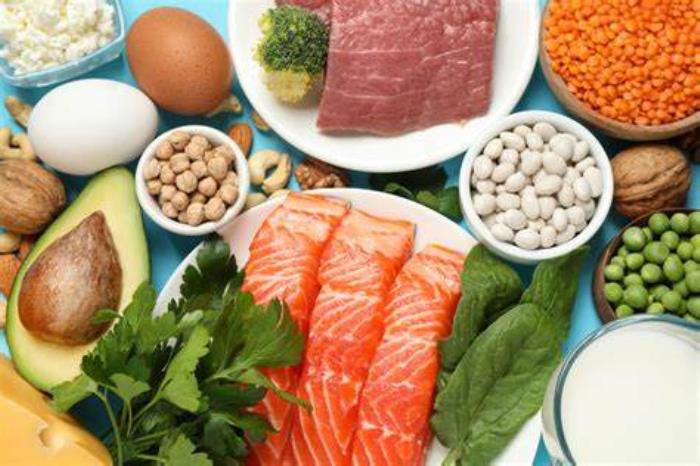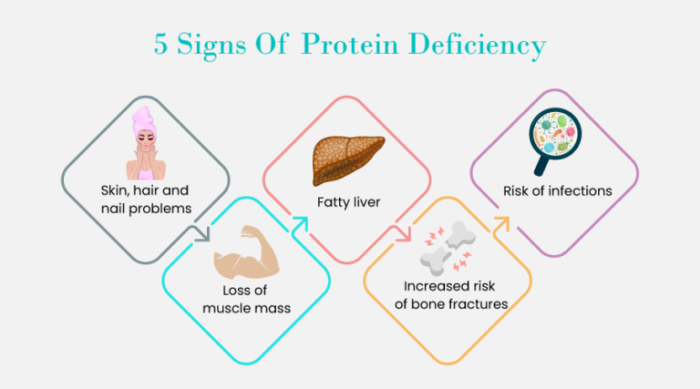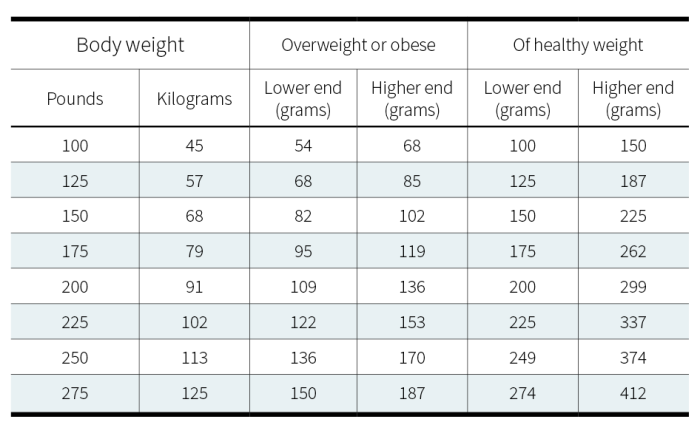Roux-en-Y Gastric Bypass (RYGB) is a popular weight loss surgery that can lead to significant changes in the body’s nutrient absorption processes. One of the critical nutritional concerns after RYGB is protein deficiency, which can arise due to reduced food intake and altered digestion.
Understanding the importance of protein and the factors that contribute to deficiency is essential for post-surgery recovery and long-term health. Ensuring adequate protein intake is vital for wound healing, muscle maintenance, and overall metabolic function following surgery.
What is Roux-en-Y Gastric Bypass Surgery?
Roux-en-Y Gastric Bypass surgery is a bariatric procedure that involves creating a small pouch at the top of the stomach and rerouting a portion of the small intestine to this pouch. This surgical alteration restricts food intake and limits calorie absorption, facilitating significant weight loss.
The procedure combines both restrictive and malabsorptive components, making it an effective option for individuals struggling with obesity and related health conditions. While RYGB can lead to substantial weight loss and health improvements, it also necessitates careful nutritional management to prevent deficiencies, particularly in protein.
Why Protein is Essential for Post-Surgery Recovery
Protein is crucial for recovery after RYGB surgery due to its vital role in tissue repair, immune function, and muscle maintenance. Following surgery, the body requires additional protein to heal incisions, rebuild muscle tissue lost during weight loss, and support overall metabolic processes.

Adequate protein intake helps prevent muscle wasting, which is particularly important for patients undergoing significant weight loss. The general recommendation for protein intake post-surgery often ranges from 60 to 80 grams per day, though individual needs may vary based on factors such as weight, activity level, and overall health.
How RYGB Affects Protein Absorption
RYGB surgery alters the digestive tract's anatomy, which can significantly impact protein absorption. After the procedure, the stomach pouch's smaller size limits the volume of food that can be consumed, potentially leading to inadequate protein intake.
Additionally, the bypassed portion of the small intestine reduces the area available for nutrient absorption, further complicating protein utilization. The changes in digestive processes may require patients to prioritize protein-rich foods and consider supplementation to meet their nutritional needs effectively.
Recognizing the Signs and Symptoms of Protein Deficiency
Recognizing the signs and symptoms of protein deficiency is critical for individuals who have undergone RYGB surgery. Common symptoms include fatigue, weakness, hair loss, skin changes, and delayed wound healing.

Patients may also experience muscle loss, decreased immune function, and increased susceptibility to infections. Regular monitoring of nutritional status and prompt identification of deficiency symptoms are essential to address potential issues early.
The Importance of Protein in Muscle Preservation
Protein plays a vital role in muscle preservation, especially after Roux-en-Y gastric bypass (RYGB) surgery. Following surgery, patients often experience significant weight loss, which can lead to muscle loss if protein intake is inadequate. Adequate protein consumption helps maintain muscle mass by providing the necessary amino acids that support muscle repair and growth.
Moreover, protein has a higher thermic effect compared to fats and carbohydrates, meaning it requires more energy for digestion, which can aid in weight management and overall metabolic health. Therefore, prioritizing protein intake is crucial for preserving lean muscle mass during the weight loss journey.
Recommended Daily Protein Intake After RYGB
After RYGB, it is generally recommended that patients aim for a daily protein intake of 60 to 80 grams. This amount helps ensure adequate protein levels to support muscle maintenance and overall health. Individual needs may vary based on factors such as age, sex, activity level, and overall health status.

It’s essential for patients to consult with their healthcare providers or dietitians to determine their specific protein requirements and develop a tailored plan.
Best Protein Sources for Post-RYGB Patients
Post-RYGB patients should focus on high-quality protein sources that are easy to digest, including lean meats like chicken, turkey, fish, and lean cuts of beef or pork. Eggs serve as a versatile source of protein that is easy to prepare. Dairy products such as Greek yogurt, cottage cheese, and low-fat milk provide both protein and calcium. For those following a vegetarian or vegan diet, plant-based options like lentils, chickpeas, quinoa, tofu, and tempeh are excellent choices. Additionally, protein powders, including whey, casein, or plant-based varieties, can be convenient for supplementation.
Protein Supplements: When and How to Use Them
Protein supplements can be beneficial for post-RYGB patients who struggle to meet their protein needs through food alone. It’s best to choose high-quality protein powders that contain minimal added sugars and fillers. Supplements can be consumed in various forms, including shakes, smoothies, or added to foods like oatmeal or yogurt.
Timing can also be important; consuming protein shortly after surgery can aid recovery, while regular intake throughout the day can help meet overall protein goals.
Incorporating Protein into Your Daily Diet
Incorporating protein into your daily diet can be achieved with some strategic planning. Start meals by focusing on protein-rich foods to ensure adequate intake. For snacks, choose options like nuts, seeds, yogurt, or protein bars between meals. Get creative by adding protein to your favorite recipes, such as incorporating beans into soups or adding chicken to salads. Additionally, planning weekly meals that highlight protein-rich foods can help you stay organized and on track.
Meal Planning Tips for Adequate Protein Intake
To ensure sufficient protein intake, consider the following meal planning tips: plan balanced meals that include a source of protein, vegetables, and healthy fats. Batch cooking can be beneficial; prepare protein-rich meals in advance, such as grilled chicken or quinoa salads, for easy access throughout the week. Variety is key include a range of protein sources to prevent monotony and enhance nutrient diversity.
Monitoring Protein Levels: Blood Tests and Assessments
Monitoring protein levels is crucial for post-RYGB patients to prevent deficiencies. Regular blood tests can assess levels of albumin and prealbumin, which are indicators of protein status. Healthcare providers may also recommend routine nutritional assessments to evaluate dietary intake and make necessary adjustments.
Keeping a food diary can help track protein consumption and identify areas for improvement.
Understanding the Role of Protein in Weight Loss and Maintenance
Protein is essential not just for muscle preservation but also for supporting weight loss and maintenance. It promotes satiety, helping individuals feel fuller for longer, which can reduce overall caloric intake.
Additionally, a higher protein diet can help maintain metabolic rate during weight loss, minimizing the decrease in energy expenditure often associated with caloric restriction.
The Impact of Protein Deficiency on Overall Health
Protein deficiency can have severe consequences for overall health, including muscle wasting, weakened immune function, and poor recovery from surgery. Symptoms may include fatigue, hair loss, and skin issues. Recognizing the signs of protein deficiency early is vital to prevent long-term health complications.
How to Address Protein Deficiency Early
To address protein deficiency early, patients should prioritize their protein intake by following a structured dietary plan. If deficiency is suspected, it’s essential to consult with a healthcare provider or dietitian to evaluate dietary habits and consider protein supplementation.
Regular monitoring through blood tests can help ensure protein levels remain adequate, allowing for timely intervention when needed.
Working with a Nutritionist: Tailoring Your Diet After RYGB
After Roux-en-Y gastric bypass (RYGB) surgery, working with a nutritionist can be invaluable in creating a personalized dietary plan that meets your nutritional needs. A nutritionist can help you understand the importance of protein and other essential nutrients, provide education on portion sizes, and guide you in making healthier food choices.
They can assist in developing meal plans that consider your preferences and lifestyle while ensuring you get enough protein and other nutrients for optimal recovery and weight management.
Patient Testimonials: Experiences with Protein Management Post-Surgery
Many patients have shared their experiences regarding protein management after RYGB surgery. Some have found that focusing on high-protein foods significantly improved their recovery and energy levels. Others have mentioned the challenges of meeting their protein goals, especially in the early stages post-surgery.
Testimonials highlight the importance of planning meals, utilizing protein supplements, and seeking support from healthcare professionals to navigate dietary changes successfully.
The Role of Hydration in Nutrient Absorption
Hydration plays a crucial role in nutrient absorption, especially after RYGB. Drinking adequate fluids helps transport nutrients throughout the body and can prevent constipation, a common issue post-surgery.
However, it's important to separate fluid intake from meals to avoid overfilling the stomach pouch. Patients are generally advised to drink water between meals rather than during, allowing for better digestion and nutrient absorption.
Avoiding Common Mistakes That Lead to Protein Deficiency
Several common mistakes can lead to protein deficiency after RYGB, including inadequate protein intake, which results from not prioritizing protein-rich foods in the diet. Overlooking portion sizes can also be problematic, as consuming large portions of non-protein foods can displace necessary protein sources. Additionally, neglecting supplementation can hinder the ability to meet protein goals, and skipping meals can result in insufficient protein intake and nutrient deficiencies.
Conclusion: Strategies for Maintaining Optimal Protein Levels After RYGB
Maintaining optimal protein levels after RYGB is crucial for recovery and long-term success. Strategies to ensure adequate protein intake include consulting with a nutritionist for personalized guidance to tailor your diet to meet your needs. It's important to prioritize protein-rich foods by focusing on high-quality sources in each meal. Additionally, utilizing protein supplements such as shakes or bars can help boost protein intake if necessary. Regularly monitoring protein levels, including considering blood tests to check for deficiencies, is also essential.
How RYGB Surgery Can Lead to Increased Energy Levels
Discover how Roux-en-Y Gastric Bypass surgery can boost your energy levels. This section explains the physiological changes that occur after surgery, including improved nutrient absorption and weight loss, which can contribute to enhanced overall vitality and well-being.
Exploring the Different Techniques of Roux-en-Y Gastric Bypass
Gain insight into the various techniques used in Roux-en-Y Gastric Bypass, including traditional and minimally invasive approaches. This section provides an overview of the surgical methods, their benefits, and how they can affect recovery and weight loss outcomes.
Best RYGB Surgery in India
The Best RYGB Surgery in India provides an effective solution for long-term weight loss by reducing stomach size and rerouting the digestive system to limit calorie absorption.
Best RYGB Hospitals in India
The Best RYGB Hospitals in India feature cutting-edge technology and experienced medical teams, ensuring patients receive comprehensive pre-operative and post-operative care for lasting results.
RYGB Surgery Cost in India
The RYGB Surgery Cost in India is competitively priced, offering transparent and affordable treatment plans without compromising on quality or safety standards.
Best RYGB Surgeons in India
The Best RYGB Surgeons in India are leaders in bariatric surgery, providing personalized surgical solutions and expert care to help patients achieve their weight loss goals.
FAQ
How much protein do I need after Roux-en-Y gastric bypass?
After RYGB, it is generally recommended to aim for a daily protein intake of 60 to 80 grams. Individual needs may vary, so it's essential to consult a healthcare professional for personalized guidance.
What are the best protein sources for someone after RYGB?
High-quality protein sources include lean meats (chicken, turkey, fish), eggs, dairy products (Greek yogurt, cottage cheese), legumes, tofu, and protein powders.
How can I tell if I'm protein deficient after surgery?
Signs of protein deficiency can include fatigue, hair loss, skin issues, and weakened immune function. Regular blood tests can help monitor protein levels and identify deficiencies early.
Are protein shakes necessary after Roux-en-Y gastric bypass?
While protein shakes are not strictly necessary, they can be beneficial for those who struggle to meet their protein needs through food alone, especially in the early stages post-surgery.
What should I do if I'm struggling to get enough protein?
If you're struggling to get enough protein, consult with a nutritionist or healthcare provider to evaluate your diet. They may recommend adjusting your meal plan, incorporating protein supplements, or providing strategies for increasing protein intake.